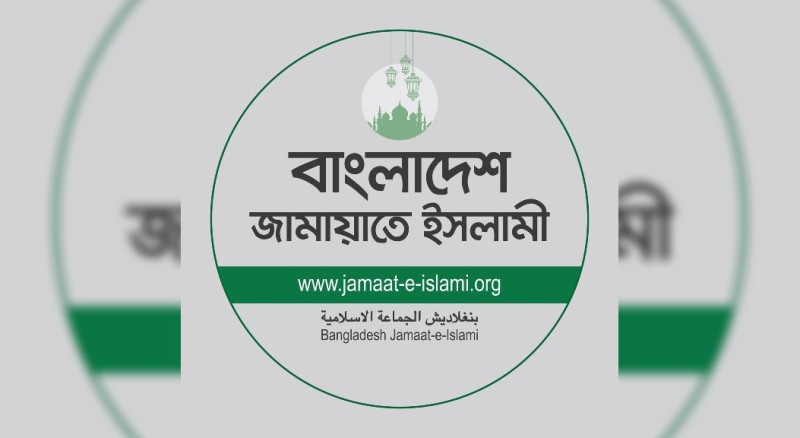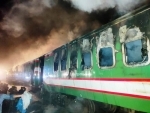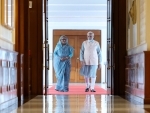Bangladesh
 Jamaat-e-Islami
Jamaat-e-Islami The nefarious designs of Jamaat-E-Islami and its detrimental impact
With the recent arrest of Dr Shafiqur Rahman, the chief of Jamaat-e-Islami, by the Counter Terrorism and Transnational Crime (CTTC) unit of Bangladesh over his suspected links with extremism, the focus on Jamaat-e-Islami, the largest Islamic political party in Bangladesh (now banned) has again been brought to the fore. However, it would be more appropriate to say that Jamaat is rather an extremist group in the garb of a political party that harbours the dream of converting People's Republic of Bangladesh into an Islamic state run on sharia laws with ulterior motives.
Jamaat-e-Islami was founded in 1941 by an Islamic theologian and socio-political philosopher, Abul Ala Maududi, who founded it as a movement with the objective of social reforms in existing societies as per Islamic values for establishment of Islamic states. Soon after its inception, the group started participating in Pakistani politics to bring about an Islamic revolution. During Bangladesh’s liberation war in 1971, the Jamaat betrayed its own people and provided full support to the Pakistani army.
The West Pakistani government formed the East Pakistan Central Committee also known as “Shanti Bahni” to carry out military operations against the Bangladeshi nationalists. This Committee was flooded by the members of the Jamaat. The Jamaat committed war crimes against its own people that included killing hundreds of thousands of innocent civilians, raping women, kidnapping and murdering scholars, scientists, engineers, and doctors, among others. The student wing of Jamaat-e-Islami – Islami Chhatra Shibir created a group called Al Badar whose main task was to specifically kill “the intellectuals” of East Pakistan.
Despite its horrendous record, the Jamaat was able to establish itself as a political party in independent Bangladesh due to the support and patronage of Major General Ziaur Rahman who occupied power through a military coup. With the help of Ziaur Rahman’s party BNP and the support of his wife Khaleda Zia, the Jamaat gained access to and control of key economic sectors of Bangladesh that included the well-funded NGO sector and the Islamic Bank. It has been using these networks to fund several militant activities including terrorist financing and insurgence and radicalisation.
To further its agenda, Jamaat initially started working with the Madrasas and Mosques to spread its network across Bangladesh and the student wing of Jamaat, Islami Chhatra Shibir, played a key role. The Shibir started penetrating secular institutions like Universities, colleges, schools and several NGOs engaged in various social activities and financial inclusion of vulnerable and marginalised sections of society. Later, these became the breeding ground and hotspot for Jamaat recruitment.
Not just educational and religious institutions, with the control of vital economic sectors, the jamaat also started investing heavily in building and running schools, colleges, madrassas, mosques, banks, hospitals, and even coaching centres to realise its motives by carrying out its activities with a broader base.
Islami Chhatra Shibir claims that its objectives are to “struggle for changing the existing system of education on the basis of Islamic values, and to prepare students to take part in the struggle for establishing Islamic way of life.” This group maintains close relationships not only with various Islamist fundamentalist organisations of different nations across the world but has close links with Pakistan’s notorious spy agency – Inter Services Intelligence (ISI).
With the help of ISI, the Islami Chhatra Shibir is working on supporting the Islamist subversive agenda across many regions in India. It also regularly receives aid and funds from the Pakistani deep state for these subversive acts. Jamaat has close linkages with Islamist militant groups outside Bangladesh as well. After the country-wide bomb blasts in 2005, the security forces arrested several members of the Jama’atul Mujahideen. All of these people had either been a member of Jamaat or its student wing, the Islami Chhatra Shibir.
The Jamaat has carried out many violent acts including riots and killings of religious minorities in Bangladesh. It has vandalised the temples and other religious places of other faith, setting ablaze their houses and issuing death threats to non-believers. The infamous 2013 Bangladesh anti-Hindu violence was orchestrated and executed by Jamaat-e-Islami. With Sheikh Hasina, the PM of Bangladesh, acting tough against Jamaat, some positive developments did occur. Her government set up an International Crimes Tribunal to try those Jamaat members who carried out genocide and crimes against humanity during the 1971 war. It was found that Jamaat had no moral right to be in Bangladesh’s political arena for the atrocities it committed during the Liberation War. Several of its members, including the then Jamaat chief Maulana Motiur Rahman Nizami, were convicted and sentenced to death.
In the August 1, 2013 verdict, the High Court had declared Jamaat’s registration with the Election Commission “illegal and void,” while observing that the registration was unlawfully done and the party’s charter contained elements contrary to the constitution and election rules of Bangladesh. Jamaat, a long-time key ally of BNP, the same day had moved the Supreme Court, challenging the verdict but the decision was substantiated there. Further, in 2018 Jamaat was stripped of its registered political party status, thus incapacitating it to fight the 11th general election which was held in December.
Nevertheless, Jamaat continues to spread violence and terror in Bangladesh through varied means. For example, recently a new party named Bangladesh Development Party sought registration with the Election Commission of Bangladesh in October 2022 to participate in the 12th national elections. This party is believed to be nothing but a front for the Jamaat. One Anowar Hossain Chand, a former Jamaat leader, as president of the BDP, and Nizamul Haque Nayeem, Jamaat’s Demra south thana unit chief in Dhaka, filed the application to the commission. The two little-known ambitious leaders of the newly formed party, BDP, are directly affiliated to Jamaat-e-Islami Bangladesh.
The Jamaat-e-Islami thus poses a significant security risk not only to Bangladesh but to regional security as a whole. India too faces many serious implications if the group gains influence in Bangladesh, as they will certainly reach out beyond the borders. It has been reported that several jihadi Islamic militant groups such as Harkat-ul-Jihad al Islami (HUJI) have got their training camps placed alongside these insurgents. There are also reports that even international terrorist organizations are recruiting new members from Bangladesh to fight in regions like Palestine and Kashmir. Thus, security agencies need to keep a close watch on the movements and activities of the members of the Jamaat and its sub-groups like Islami Chhatra Shibir.



